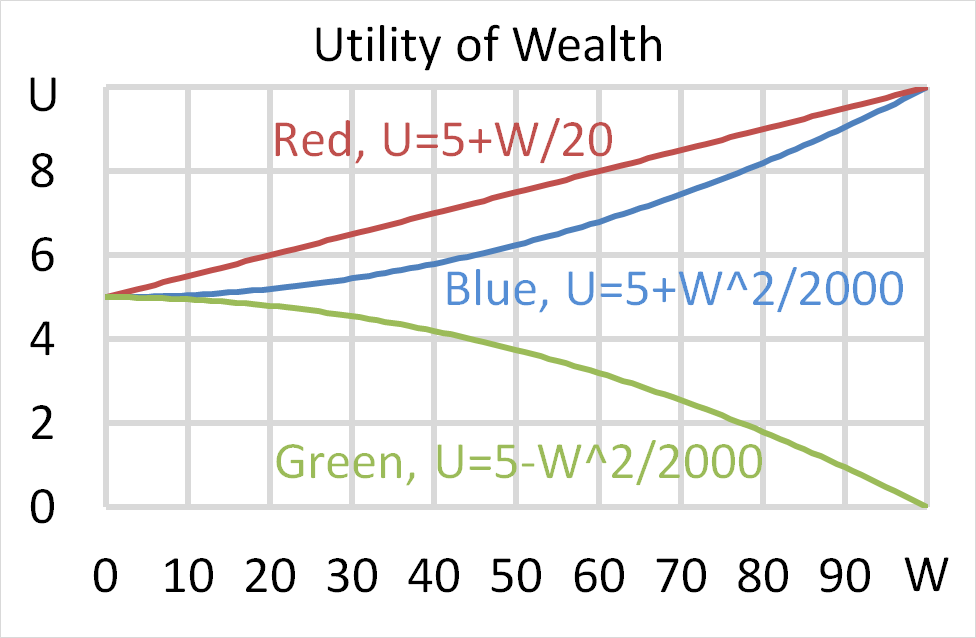You just borrowed $400,000 in the form of a 25 year interest-only mortgage with monthly payments of $3,000 per month. The interest rate is 9% pa which is not expected to change.
You actually plan to pay more than the required interest payment. You plan to pay $3,300 in mortgage payments every month, which your mortgage lender allows. These extra payments will reduce the principal and the minimum interest payment required each month.
At the maturity of the mortgage, what will be the principal? That is, after the last (300th) interest payment of $3,300 in 25 years, how much will be owing on the mortgage?
A company has:
- 50 million shares outstanding.
- The market price of one share is currently $6.
- The risk-free rate is 5% and the market return is 10%.
- Market analysts believe that the company's ordinary shares have a beta of 2.
- The company has 1 million preferred stock which have a face (or par) value of $100 and pay a constant dividend of 10% of par. They currently trade for $80 each.
- The company's debentures are publicly traded and their market price is equal to 90% of their face value.
- The debentures have a total face value of $60,000,000 and the current yield to maturity of corporate debentures is 10% per annum. The corporate tax rate is 30%.
What is the company's after-tax weighted average cost of capital (WACC)? Assume a classical tax system.
Question 104 CAPM, payout policy, capital structure, Miller and Modigliani, risk
Assume that there exists a perfect world with no transaction costs, no asymmetric information, no taxes, no agency costs, equal borrowing rates for corporations and individual investors, the ability to short the risk free asset, semi-strong form efficient markets, the CAPM holds, investors are rational and risk-averse and there are no other market frictions.
For a firm operating in this perfect world, which statement(s) are correct?
(i) When a firm changes its capital structure and/or payout policy, share holders' wealth is unaffected.
(ii) When the idiosyncratic risk of a firm's assets increases, share holders do not expect higher returns.
(iii) When the systematic risk of a firm's assets increases, share holders do not expect higher returns.
Select the most correct response:
You want to buy an apartment worth $400,000. You have saved a deposit of $80,000. The bank has agreed to lend you the $320,000 as a fully amortising mortgage loan with a term of 30 years. The interest rate is 6% pa and is not expected to change. What will be your monthly payments?
The expression 'cash is king' emphasizes the importance of having enough cash to pay your short term debts to avoid bankruptcy. Which business decision is this expression most closely related to?
A trader buys one December futures contract on orange juice. Each contract is for the delivery of 10,000 pounds. The current futures price is $1.20 per pound. The initial margin is $5,000 per contract, and the maintenance margin is $4,000 per contract.
What is the smallest price change would that would lead to a margin call for the buyer?
Mr Blue, Miss Red and Mrs Green are people with different utility functions. Which of the statements about the 3 utility functions is NOT correct?

Question 794 option, Black-Scholes-Merton option pricing, option delta, no explanation
Which of the following quantities from the Black-Scholes-Merton option pricing formula gives the Delta of a European call option?
Where:
###d_1=\dfrac{\ln[S_0/K]+(r+\sigma^2/2).T)}{\sigma.\sqrt{T}}### ###d_2=d_1-\sigma.\sqrt{T}=\dfrac{\ln[S_0/K]+(r-\sigma^2/2).T)}{\sigma.\sqrt{T}}###Question 833 option, delta, theta, standard deviation, no explanation
Which of the following statements about an option (either a call or put) and its underlying stock is NOT correct?
Question 883 monetary policy, impossible trinity, foreign exchange rate
It’s often thought that the ideal currency or exchange rate regime would:
1. Be fixed against the USD;
2. Be convertible to and from USD for traders and investors so there are open goods, services and capital markets, and;
3. Allow independent monetary policy set by the country’s central bank, independent of the US central bank. So the country can set its own interest rate independent of the US Federal Reserve’s USD interest rate.
However, not all of these characteristics can be achieved. One must be sacrificed. This is the 'impossible trinity'.
Which of the following exchange rate regimes sacrifices convertibility?